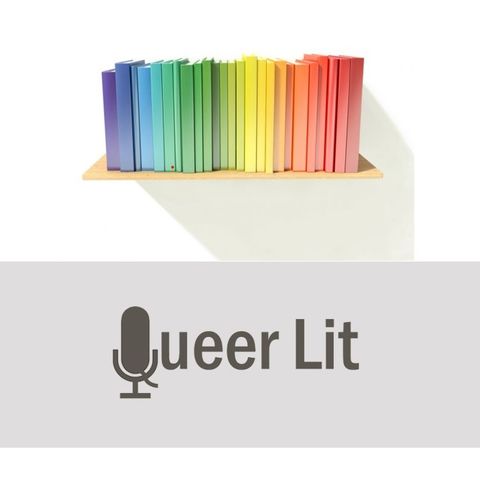“Realness, Loss and Underdogs” with Heather Love

Download and listen anywhere
Download your favorite episodes and enjoy them, wherever you are! Sign up or log in now to access offline listening.
Description
It’s time to be real. In this episode with queer studies luminary Heather Love, it’s all about what you find, what you feel, what you knooooow(-ah) to be real. We...
show moreReferences to Heather’s work:
Underdogs: Social Deviance and Queer Theory. Chicago: University of Chicago Press, 2021.
Feeling Backward: Loss and the Politics of Queer History. Cambridge: Harvard University Press, 2007.
2023 Eve Kosofsky Sedgwick Memorial Lecture in Gender + Sexuality Studies by Heather Love
https://www.youtube.com/watch?v=ZU6bT2ZtNlA
“Assessing Critique, Scholarly ‘Habits,’ Queer Method and ‘Turns’: An Interview with Heather Love.” In Feminist Encounters: A Journal of Critical Studies in Culture and Politics, ed. Salla Peltonen and Marianne Liljeström 1.1 (Autumn 2017).
“Gyn/Apology: Sarah Orne Jewett’s Spinster Aesthetics.” ESQ: A Journal of the American Renaissance. ESQ 55.3-4 (Winter 2009): 305-334.
“Safe.” American Literary History 25.1 (Spring 2013): 1-12. Special issue on second books, ed. Gordon Hunter.
Other references:
Davy Knittle
Paris is Burning
Cheryl Lynn’s “To Be Real”
Susan Stryker’s “My Words to Victor Frankenstein” (GLQ, 1994)
Mary Shelley’s Frankenstein
Jacques Derrida
Jean-Paul Sartre
Judith Butler’s Gender Trouble
Alison Kafer’s Feminist Queer Crip
Tobin Siebers Rachel Carroll
Susan Stryker’s “More words about ‘My words to Victor Frankenstein’.” (GLQ, 2019)
Audre Lorde’s “The Uses of Anger”
William Wordsworth: “Overflow of powerful feelings [...] recollected in tranquillity”
Ellen Rooney. “A Semiprivate Room.” (Differences, 2002)
Paolo Freire
Herb Kohl
bell hooks
Patricia Highsmith’s The Price of Salt
Carol
Grace Ellis’ Flung Out Of Space
Questions you should be able to respond to after listening:
- How does Heather define realness? How does it relate to realism and authenticity? What does being real mean to you?
- What does Heather say about the impulse to prioritise novelty in queer studies and in capitalist systems?
- Which Susan Stryker essay does Heather speak about? Why does she find it so important?
- How do affect studies come into Heather’s work? What does she say about Audre Lorde and writing from a place of anger?
- Do you think that the classroom is a ‘semiprivate’ space? Take a look at the Rooney essay to investigate.
- Please pick one of the texts Heather mentions (either her own or other scholars’ work) and read it. The reading recommendations in this episode are heartfelt and brilliant!
Information
Copyright 2024 - Spreaker Inc. an iHeartMedia Company

Comments